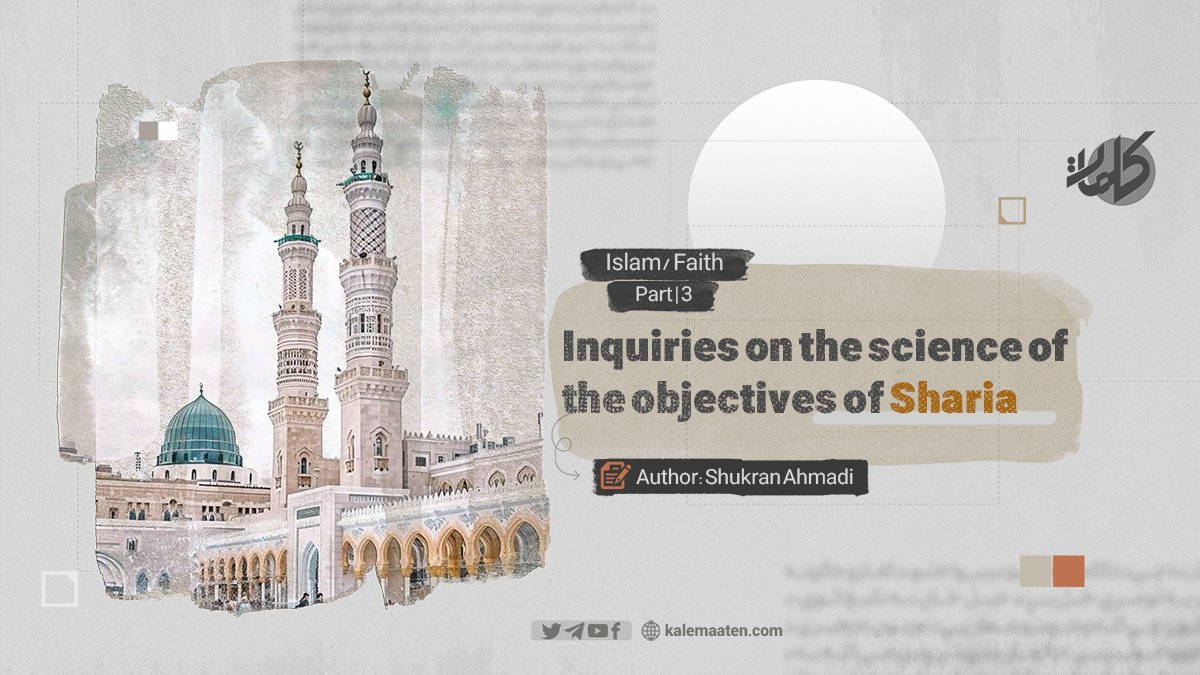
Author: Shukran Ahmadi
Inquiries on the Science of the Objectives of Sharia (Part Three)
B: The Literal Meaning of Sharia
Sharia, in its literal sense, means religion, nation, method, way, and tradition. In the Arabic language, “Shariat” is used to refer to a gate or entrance, as well as to a drinking fountain—a place where one can drink water without a rope. The harmony and compatibility between religion and the means of drinking (as metaphorically described) relate to saving one from thirst and providing sustenance. Just as water is essential for life and salvation, both religion and Sharia are crucial for the welfare and salvation of people. As Allah (S.W.T) High has said: «ثُمَّ جَعَلْنَاكَ عَلَى شَرِيعَةٍ مِنَ الأمر فَاتَّبعها» Translation: “Then We placed you on the right law and religion; follow it.”
C: The Idiomatic Meaning of Sharia
Shaykh Jurjani, may Allah have mercy on him, stated that “Sharia is the fulfillment of the desires of a servant through implementation.” Ibn Taymiyyah, may Allah have mercy on him, defined Sharia as “the name that encompasses all the beliefs and actions that Allah Almighty has made legitimate.”
D: Terminological Definition of the Objectives of Sharia
The founders and eminent scholars of the science of goals, such as Imam Ghazali and Al-Shatibi, may Allah have mercy on them, have not specifically focused on a definition of this science. While some writers have attempted to define it, they refer to the science of public or specific objectives, which may contradict the comprehensive nature required in a definition. Thinkers and researchers of the 20th and 21st centuries have paid attention to defining the science of the objectives of Sharia and have provided several definitions. Among these, the following definition is considered a well-rounded and comprehensive explanation:
Maqasid (Objectives): “The reasons, wisdom, goals, and ends that the Holy Sharia has considered in legislating rulings, whether general or specific, in order to observe the interests of the servants.”
The key terms in this definition are “cause” and “wisdom.” In Usulian terminology, “cause” has two meanings: the first is “conformity with the rules of Sharia,” which is also included in the definition; the second is “a clear and obvious description” that is deemed expedient if the verdict is fulfilled. Likewise, wisdom, in Usulian terms, refers to converting a description into a cause, or to attract and fulfill a material benefit while also eliminating or minimizing corruption.
In other words, the actions and commands of Allah Almighty are based on causes and interests that have lawful purposes and intentions. These causes, wisdom, and legislative goals serve as guardians of the worldly and eternal interests of the servants. Therefore, the objectives of Sharia encompass the reasons, rulings, and goals established in Sharia to attract benefits and prevent the corruption of the servants from the perspective of Sharia.
The texts that clarify the reasons for the actions and commands of Allah Almighty aim to ensure that the rules of Sharia do not lead to laziness or frivolity, as Allah Almighty states: «وَمَا خَلَقْنَا السَّمَاءَ وَالْأَرْضَ وَمَا بَيْنَهُمَا لَاعِبِينَ» Translation: “We did not create the heavens and the earth and what is between them out of play.” Based on this principle, the rules of Islamic Sharia have distinct goals and are not legislated in vain or unnecessarily. A thorough understanding of the objectives of Sharia involves examining and analyzing the goals behind Islamic legislation.
Continues…


